|
I am considered "the animal person" where I work. Because of my advocacy, people seek me out on a variety of subjects and when they need help. I am not the Dog or Cat Whisperer, but I do my best to help people and point them in the right direction. A co-worker emailed me yesterday to tell me she wanted to get a puppy for her five year-old daughter and wanted my help. I asked her to come see me instead. We had a long conversation (which I warned her would sound more like a lecture) about why she wanted to get a dog, what kind of dog she thought she wanted, why she wanted a puppy, etc. She said that she had grown up with a dog who was her best friend and she wanted that for her daughter. She wanted a puppy and wanted a small breed dog so her daughter would have a companion and would have someone to hug on and play with. No. No. No. And No. The conversation took a different turn from there. We talked about how much work it is to have a puppy, about how many small breed dogs do not do well with children and about how hugging a dog is just not a good idea. I told her point blank that if her daughter needed something to hug, to get her a stuffed toy. We talked about how bringing any dog into a home is a 15 to 20 year commitment not to be taken lightly. In the end, we had a good conversation. I believe my co-worker’s heart is in the right place and she does want to get a dog for all the right reasons. She has plans today to meet a medium-sized rescue dog whose life is at risk but who is described as both "sweet" and "cuddly." Have I hugged our dog? Sure. More than my husband prefers. But we’ve known each other for 16 years and I know enough about our dog’s body language to know when a soft hug will be well received as opposed to resulting in some vocalization because he isn’t feeling well. You can kiss your spouse. You can hug your child. But if you really want to show your dog how much you love him or her, learn about dog behavior and about what your dog needs from you. And if you want to spend some quality time together and bond - take your dog for a walk. Canine Body Language Successfully Adopting a Rescue Dog The Data Says "Don't Hug the Dog" Canine Body Language From Labrador Training HQ (very comprehensive and well worth the read)
0 Comments
I grew up not just in an animal-friendly household, but in an animal-integrated household. We always had companion animals and they were part of the family. Some lived short lives and we lost them to illness. Some lived decades and we would marvel at how healthy they remained year after year. I take for granted that companion animals are a long-term commitment. You don’t give away or discard your family members. It’s just not done. Because I was raised this way, I have very limited tolerance for people who treat companion animals like things or like furniture. Your dog is not a couch. Your cat is not a lamp. When you bring a companion animal into your life and your home, you should be prepared for a 15 to 20 year commitment and all that the commitment entails through the good, the bad, the hilarious, the infuriating and the heart breaking. I have often thought there should be pet caregiver vows, but I’m not sure who would administer them. I make this promise to you. I will care for you for your time on Earth. I will value you on my worst of days and on your worst of days. If you make a mess or eat my shoes, I will understand that is not done with malice but is the result of something I failed to do for you. I will help you understand my language and I will learn yours so that we can communicate easily. I will make sure you can be identified if we are ever separated from each other so you can find your way home. I will never hurt you, abandon you or be cruel to you. If you get sick, I will take care of you. When you get old, I will take care of you. I will have a care plan for you in case something happens to me so that you will have a new home with people who will love you as I do. I value your unconditional love, your humor, your company and your soul. And I will keep my promise to be there for you for all of your days. If you are not prepared to make a commitment to a companion animal, please do not get one. If you have a burning desire to have a pet, but know you cannot make the commitment that entails, become a foster to save a life. (image courtesy of Harley, Dan and Rudi Taylor; Harley is a puppy mill survivor who was named the Hero Dog of 2015; www.harleypuppymilldog.com)
I was talking to a contact of mine in Chicago the other day about the issue of toxicity in animal welfare advocacy. She said, “I wish I could list all the people I meet who tell me they have stopped giving money to animal causes because they can't stand dealing with the rescue people anymore. I am not talking small dollars either. Now they give to people causes, or the symphony. Shame on the animal community.”
Yes, shame on the animal community. Most people who are not “in the weeds” of animal welfare advocacy and who simply want the best for animals likely have no idea of the battles being waged each and every day between people who claim to advocate for animals. I would like to think this is a testament to the emotional nature of our attachment to animals; we care deeply and so when we cannot agree, we argue passionately. I'm afraid that the dysfunction within our ranks has gone far beyond what I could ever consider passionate discourse. I engage regularly with people who don't share my belief system or at least have differing opinions. Although my beliefs are firm on certain points, I have no issue at all with having an adult conversation with someone who does not agree with me. That's what adults do. We share thoughts and opinions and ideas and while we sometimes find common ground, we come to terms with those items on which we will simply have to disagree. There is a certain level of toxicity and hostility in animal welfare circles, however, which just never ceases to amaze me. If you don't agree with me or my belief system, that's perfectly fine with me. Please walk away and let's each just continue on our own path. But when you don't agree with my belief system and you make a direct effort to attack me personally, I am left to wonder what you really hope to accomplish and if your time would not be better spent doing something to actually help animals instead. There will always be differences of opinion in animal welfare circles, but it is my position that those who engage in hostile attacks on a personal level and who engage in behavior that even children know is wrong, truly do a disservice to the causes they claim to support. Someone who does not share my belief system recently took the time to download a PSA I did for television, edit my voice out of the PSA and create a video with the audio file which they surely would not want to share with their mother. Using my voice in this manner and without my permission is not going to cause me to suddenly change my opinions as I throw my hands up in the air and say, “oh, okay. You were right all along. And please stop being mean to me.” I am quite certain the time spent on that particular project would have been better spent trying to find a home for a shelter animal. This is just an example of a series of things done and remarks made about my advocacy and that of others in my community, some of which is actually libelous and about which an attorney is being consulted. The people engaging in this behavior? Rescuers and shelter volunteers, one of whom is the vice-president of a well-respected nonprofit group. I am not suggesting by any means that we all sit around and sing kumbaya and hope that things get better while we focus on not offending anyone. There is a time, place and style which is appropriate for advocacy. It is one which focuses on facts and policies and programs and not on personalities and people and pride. I work very hard to be logical in my advocacy and while I have referred to the destruction of healthy and treatable animals in our nation's shelters as killing – because it is most certainly not “euthanasia” - I have never engaged in name calling or personal attacks of any kind because doing so serves no purpose. Some would say that our issues in our country are animal issues, but they really are people issues related to making better personal choices related to companion animals and doing a better job of spending our collective funds to help shelter pets and not kill them. I am sure I will continue to be attacked by those who do not share my belief system and who are so diametrically opposed to my values that they lash out against me. This behavior is quite telling for me. Because if they are attacking me, it means they have no real, logical arguments to counter my beliefs they think are "wrong" and which they claim to oppose. Attacks and bullying are tools of desperation. 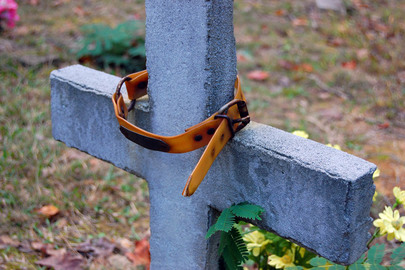 There is a concept in animal sheltering called the Bubba Factor which essentially means what it sounds like: that people in “the south” are incapable of doing better for companion animals because they are simple minded and have antiquated attitudes regarding animals as property. Although I was not born in the south, I have lived in Alabama for many years and consider myself one of the locals in many ways. I have seen enough over the years and engaged with enough people “from here” to know that it is time to rethink the whole Bubba Factor concept when it comes to companion animals. I will be the first to admit that a cultural divide still exists in some areas of the south regarding “inside” animals v. “outside” animals. My dog will never live outside. He is a member of our family and I would no sooner relegate him to a fenced yard 24/7/365 than I would do that to a human member of my family. I know people whose animals will never live inside. They would no sooner have a dog living inside 24/7/365 as a family member than they would set a place for a rooster at the dinner table. Some people confuse these cultural differences of opinion for a mindset that animals are just things which lack feelings and self-awareness. And they do so unfairly. The south is no different than any other area of the country when it comes to irresponsibility and treatment of animals as things. We have plenty of people who should not be allowed to have companion animals at all and some who should likely be legally enjoined from ever having pets. But there are people like that across the country. From where I sit, the southern family which allows a dog to run at large with an antiquated mindset that the dog is not harming anyone and can easily be replaced if hit by a car is no more irresponsible than a person in Los Angeles who buys a dog at a pet store, carries it around in a purse like a status symbol or a living piece of jewelry and then decides the dog must go to a shelter when it won’t stop making a mess in the house in spite of being told in plain English to “stop”many times. The thing that I think people tend to forget about the south is this: for all of our negative history and all of the undeserved stereotypes about values and intelligence, people from the south are some of the most morally grounded people in the country. Many people here are deeply religious and have very strong values when it comes to treatment of domesticated species. They see themselves as stewards of all animals, whether those animals serve some specific function or they share their homes with human caregivers. Most people in the south do want the very best for all animals and need only be educated on issues related to humane treatment and better choices to change how they think and function. When we tell people about the benefits of spay and neuter, the cruelties of perpetual chaining, the dangers of allowing animals to run at large and the benefits of microchipping to ensure lost pets can get back home, they listen and they adjust their behavior accordingly. I know that at some time in the next month I will see someone in a Walmart parking lot either selling or giving away puppies. It will infuriate me enough that I will stop and we’ll have a conversation about why that’s happening. They’ll look at me like I’m from another planet as I drive away. And as I remember that there are people in that same Walmart parking lot who had their cat spayed this week or donated a dog bed to a local animal shelter or did a flyer for a lost dog who wandered into their yard or helped an elderly neighbor pay for veterinary care of a very sick and much beloved cat or bought a dog bed because they realize that their aging canine companion will be immeasurably more comfortable inside the house. More people here love and value their animals than don’t and even in the south, there is enough compassion in our communities to overcome the irresponsibility of the few. Image from the Key Underwood Coon Dog Memorial Graveyard in Cherokee, Alabama
I cover a number of subjects on my web site: puppy mills, breed bans, aggression in dogs, chaining, spay and neuter. I chose each of the topics on the site because they are all related in some way to the subject of what takes place in our animal shelters using our money. If you are not currently aware of what is taking place in a "shelter" near you in your name and using your tax dollars, I am here to burst the bubble of your ignorance, I'm afraid. Unless you live in what is called a no kill community (a place where tax dollars are not used to destroy healthy and treatable animals), your shelter is likely destroying the vast majority of animals and is blaming you for being "forced" to do so. Animals enter the building, some are adopted out and the rest are destroyed, having been given no individual consideration at all. I cover each of the subjects I have on my website because they all related to shelter killing in some way. Puppy mills lead to deaths of dogs in shelters because mills produce countless dogs each year (due to our demand), infusing more dogs into the system than we need. Failure to use a process called Trap-Neuter-Return to reduce populations of free roaming (or "community" cats) causes many of them to be trapped and taken to our shelters where most are summarily destroyed (when they do not belong in our shelters any more than does a squirrel.) When we don't spay and neuter our pets, we create population problems in our communities and animals which should not have been born in the first place end up in the shelter system. Because shelters kill animals, many people believe those animals are somehow damaged and so they choose to get pets from other sources like the internet, the newspaper or even worse, a Walmart parking lot. I could go on, but you probably get the point. I am incredibly harsh in my criticism of the animal sheltering system in America. I'm pretty much zero tolerance on this subject because I know there are proven programs which are being used across the country to save animals which end up in our shelters. There is just no good reason for them to die. I think it is entirely hypocritical to call ourselves an animal-friendly country while we destroy savable dogs and cats behind closed doors. It is our public shame. And it is up to us to stop it. We do so by making better personal choices but also by speaking up to demand that our money be used not to end lives but to save them. Do you know what's happening at your local animal shelter? Ask. Do you know how your choices affect what takes place in your community? Think about it. image courtesy of Peace and Paws Rescue
Some local issues recently have put me in a position of being attacked by those who do not share my values and who think it is appropriate to use social media to try to bully me. I am not immune to the effects of such hostility, but my news flash is pretty simple: I will not be bullied. Which leads to my blog post for today.
I am a no kill advocate. I advocate for the end of the destruction of healthy and treatable companion animals in places we call animal shelters. I do not want my money used to end lives when that same money can be used to save them. "No kill" is not a definition and does not mean "never kill." No kill is a culture in which healthy and treatable pets are not destroyed. The culture allows for the euthanasia of animals which are suffering or irremediably ill. To keep those animals alive would be unethical. The culture also allows for the destruction of dogs which are genuinely aggressive and present a public safety risk (as opposed to dogs which are scared or traumatized) when there is no sanctuary placement available for those dogs. The measure of a no kill community for me is not all about math and very much about method. I am not at all focused on the live release rate in any shelter provided the savable animals are not destroyed. If that means the live release rate is 98% one month and 88% the next, so be it. It is the standard on which I am focused. I do not see a 90% save rate as a goal. It has historically been considered a benchmark of success and, as a result, this has led some shelters to focus on achieving that rate at all costs, even if it means reduction in public services and engaging in practices which are harmful to the public, animals and the community as a whole. I promote a series of programs which work in concert with each other to reduce animal shelter intake, increase animal shelter output and bring the animal-loving public to the table so they can be educated to make better choices which affect animals, families and communities. I believe in the value of these programs because I know people who are using them to revolutionize their communities and to bring animal sheltering in line with existing values in our society. I do not claim to know of the only way to stop the outdated practice of killing shelter pets. If you know of another way which works quickly, efficiently and is sustainable long-term, I am happy to get out of the way and allow some other methodology to work. I am a cheerleader for change and a broker of ideas. I believe in engaging in genuine dialogue to help shelters change how they think and function by following the path taken by others. I am forward thinking and see no value in assigning blame or guilt. I am results-oriented. Period. I do not engage in name calling. I have never called a shelter director or employee a murderer or killer and have never engaged in any personal attacks of any kind. I do refer to the act of destroying healthy and treatable pets as killing them because it is not euthanasia. I know exactly what euthanasia means and it does not apply to taking the life of a healthy or treatable animal. I am very critical of people in the shelter industry whose actions over a period of years demonstrate that they are more focused on their own pride or image than they are on the lives of the animals entrusted to their care. I do not expect any shelter to become a no kill facility overnight, although I am aware of occasions when that has actually happened. I do expect the shelter industry to stop blaming the very public which can help it save lives and to act with a genuine sense of urgency to develop the programs necessary to do just that. Just because some people should never have pets does not mean that the public at large cannot be trusted and is completely irresponsible. I believe there is enough compassion in any community to overcome the responsibility of the few and I have seen that compassion demonstrated time and time again when the public is told exactly how they can help. I see shelter killing as a disease and no kill programs as the cure. If you are told there is a cure and you refuse to examine it for whatever reason, you need to find a new job. If you are told there is a cure and you are willing to network with and learn from those who are saving the lives of healthy and treatable animals in municipal and nonprofit shelters across the country - and to do so earnestly and urgently - you will have my respect. I don’t want your job. I have one already. And I am already incredibly busy during my spare time with rescuing animals, fostering animals, marketing for animals and doing volunteer work for a host of nonprofit organizations across the country which help animals each and every day. There are no days off. Do not presume that because I am not in your shelter or doing volunteer work for you that my advocacy has no value. I support organizations which share my no kill values. Do not label me as part of the problem and as being incapable of helping kill shelters do a better job simply because I have standards. I would no more volunteer in a kill shelter than I would work the line at a poultry processing plant. If you want my time and my emotional energy, convince me that healthy and treatable pets are not at risk in your shelter and that you treat all animals as individuals with value. I want those in the shelter industry to do the jobs they are being paid to do. In the case of those in municipal shelters, you are public servants and you are paid with my money. It is entirely reasonable and acceptable for me to be critical of how you spend my money when it comes to matters of life and death. I hold other municipal officials to the same standard regardless of their profession: police, fire, public works. If you are not willing to accept any form of criticism from the very people who pay your salary, you need to leave public service and find another form of employment where you are not subject to public criticism. I am not the enemy. I am a no kill advocate. |
AuthorI am an animal welfare advocate. My goal is to help people understand some basic issues related to companion animals in America. Awareness leads to education leads to action leads to change. Archives
July 2024
Categories
All
image courtesy of Terrah Johnson
|
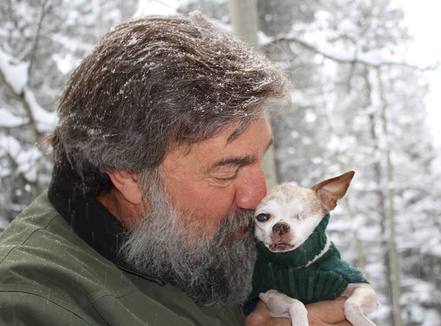
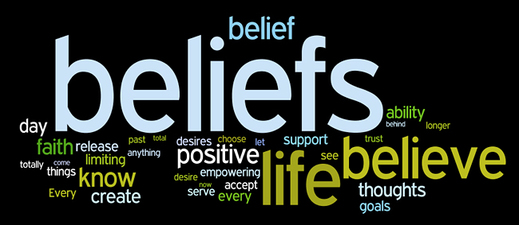
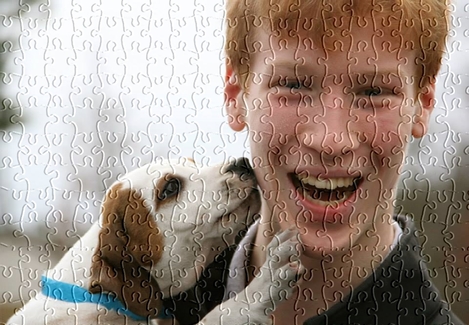
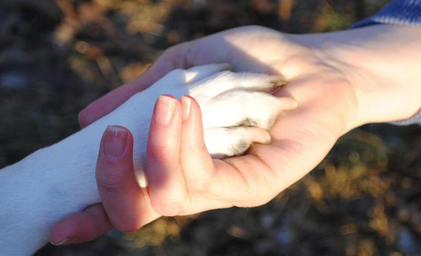
 RSS Feed
RSS Feed